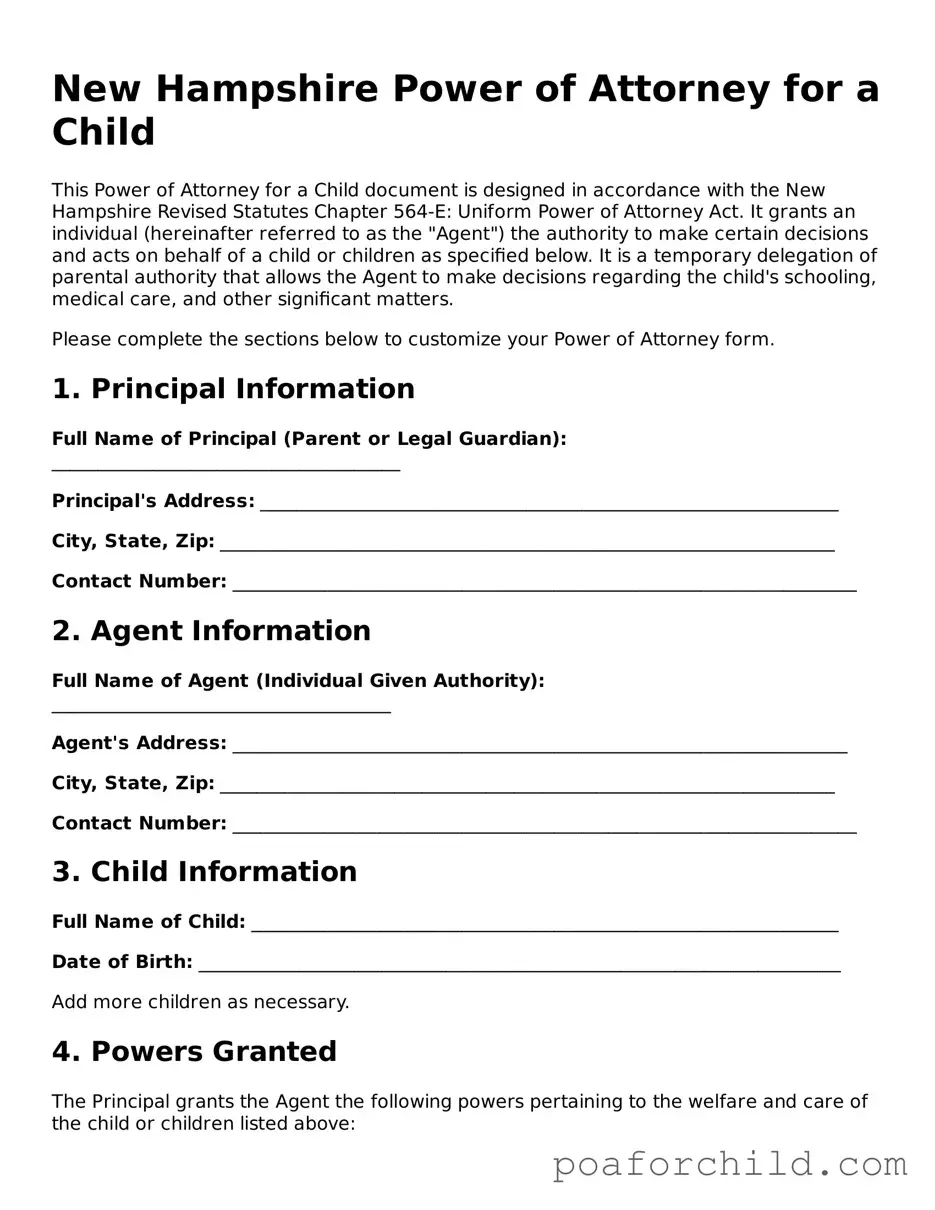Detailed Guide for Using New Hampshire Power of Attorney for a Child
Filling out a Power of Attorney (POA) for a child in New Hampshire is a critical step in ensuring the care and decision-making for a child is formally assigned to a trusted adult, other than the parent, in the parent's absence. This might be necessary in various scenarios such as the parent's prolonged travel, military deployment, or illness. Completing this form accurately ensures that the designated person, often referred to as the agent, has the legal authority to make decisions regarding the child's education, health, and welfare.
- Collect all necessary information including the full legal names and addresses of the parent(s), the appointed guardian (agent), and the child or children to be covered by the POA.
- Locate the official New Hampshire Power of Attorney for a Child form. This is available on the New Hampshire judicial branch website or can be obtained from a legal professional.
- Enter the date the POA will become effective at the top of the form. This is crucial as it designates when the agent's authority to make decisions on behalf of the child begins.
- Fill in the child's name, birth date, and address in the designated section.
- Provide detailed information about the parent(s) or legal guardian(s) including their name(s), address(es), and contact details.
- Identify the appointed guardian (agent) by writing their full name, relationship to the child, address, and contact information.
- Specify the powers being granted to the agent. It’s important to read each item carefully and check the appropriate boxes that apply to the powers you’re delegating.
- Outline any special instructions or limitations to the agent's powers in the section provided. For instance, you may wish to limit decisions related to medical treatment or educational matters.
- Review the term of the POA. The document should state when it will expire, which by New Hampshire law, cannot exceed six months unless further extended.
- Both the parent(s) or legal guardian(s) and the designated agent must sign the form in the presence of a notary public to make it legally binding.
- Finally, ensure a copy of the completed and notarized form is given to the agent and any other relevant parties, such as the child’s school or healthcare provider.
Once the form is accurately completed and filed with the appropriate parties, the agent will have the authority to make decisions for the child within the scope designated in the POA. Remember, this legal agreement can be revoked by the parent or guardian at any time, as long as the revocation is communicated to the agent in writing. Ensuring the well-being and safety of the child is the primary goal, and the Power of Attorney for a Child can provide peace of mind that someone trusted can legally act on the child’s behalf when the parent is not available to do so.
